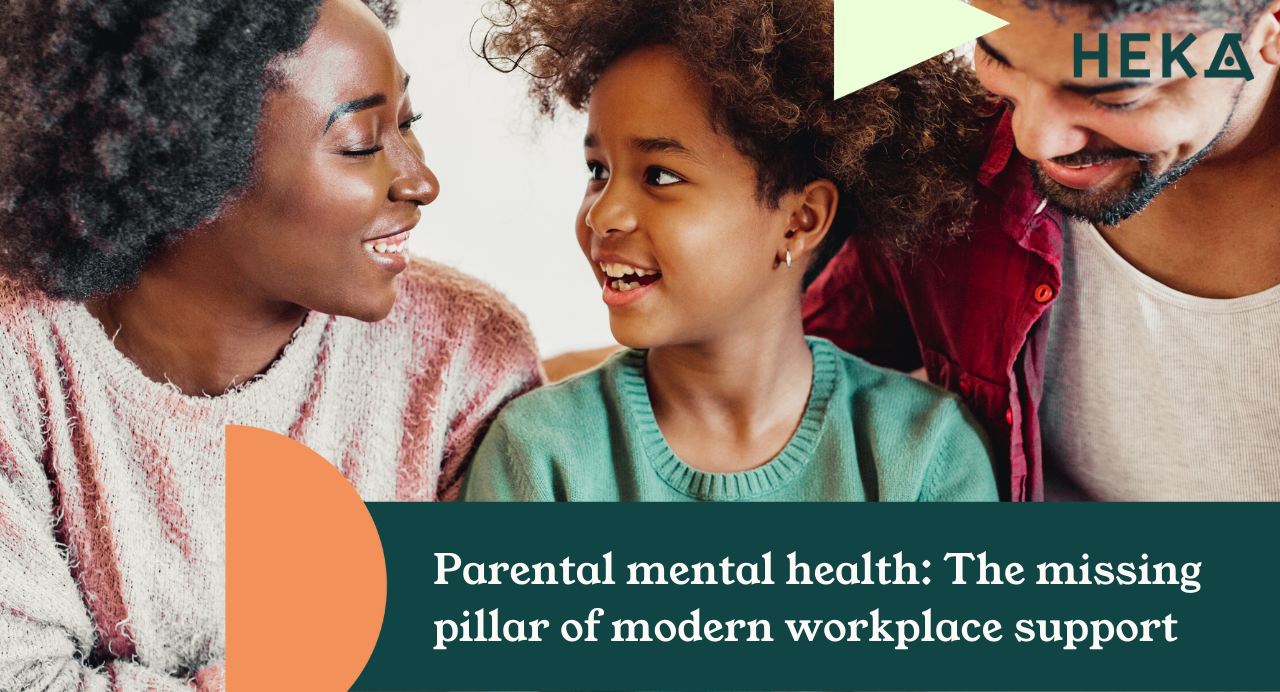A quick summary:
It’s Men’s Health Month - a time to break down the stigma, share the facts, and have open conversations about why men are still far less likely to seek medical help than women when they need it most.
The reality? Men wait too long.
According to multiple studies, men are significantly less likely than women to visit the doctor - especially for early-stage symptoms. Many wait until symptoms become severe, or even life-threatening, before seeking support. Why? A mix of social pressure, fear of seeming “weak,” and the belief that symptoms will pass.
We hear this all the time from Heka users. One story, from Adam - our Growth Marketing Manager - stands out.
Adam’s story: “I didn’t realise how bad it was."
“I felt really unwell. I hadn’t slept for five nights. I kept thinking, ‘I just need to push through.’ I was due to be best man at my friend’s wedding, and I told myself I couldn’t miss it - so I powered through.”
After a full week of sleepless nights, intense discomfort, and ignoring the signs, Adam finally reached a point where he knew something wasn’t right.
“It took more than a week of being in pain before I admitted I needed help. I used my Heka allowance to book a virtual GP appointment. The doctor took one look at my symptoms and told me to call 111 immediately.”
Adam was very ill. He was quickly diagnosed with a serious issue requiring emergency attention - and within days, he had to have his gall bladder removed.
“It was scary. But without access to that GP appointment, I honestly don’t know how much longer I would’ve waited.”
Why this matters
Adam’s experience is far from uncommon. Research shows:
- Men are 32% less likely than women to visit their GP
- 40% of men only seek help when symptoms become unbearable
- Mental health struggles in men are often undiagnosed and untreated
Delaying care - whether physical or mental - can turn manageable issues into emergencies. And it can lead to burnout, long-term health problems, and unnecessary hospital stays.
How employers can help
Men’s health is a workplace issue, too. The longer someone waits to seek help, the greater the risk to their wellbeing and productivity. But with the right tools and culture, you can change that.
This Men’s Health Month, ask yourself:
- Do your benefits make it easy for employees to access quick, judgment-free support?
- Are men in your workplace encouraged to talk openly about their health?
- Is medical help available discreetly, without having to go through managers or submit receipts?
What Heka does differently
Heka gives employees the power to prioritise their health - on their own terms.
- Virtual GP access through Heka helps people act fast, without the wait.
- Completely private usage means men can explore support without stigma (seriously, nobody will know what you use, unless you tell them!)
- A wide range of options lets them engage with physical health, mental health, nutrition, and more.
- On-demand care removes the admin barrier that often causes delays.
Adam’s story is a clear example of how important fast, judgment-free access to care can be - and why employee benefits platforms like Heka can be lifesaving, not just life-enhancing.
Changing the conversation
Men’s Health Month isn’t about telling men to “man up” and get to the doctor. It’s about changing the conversation.
We need to normalise early action. We need to empower men to say, “Something’s not right, and I’m going to check it out” - without shame, delay, or unnecessary admin.
Adam’s story had a positive ending because he had a resource to turn to. Let’s make sure more men do.
Join our webinar to uncover how ‘man up’ culture harms men’s health - and how employers can create real change. Register now to support healthier teams this Men’s Health Month.






